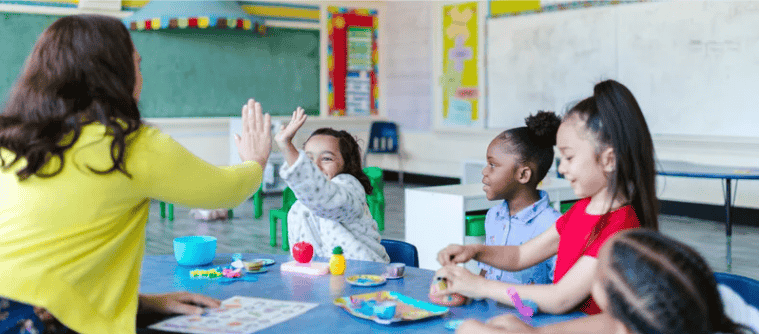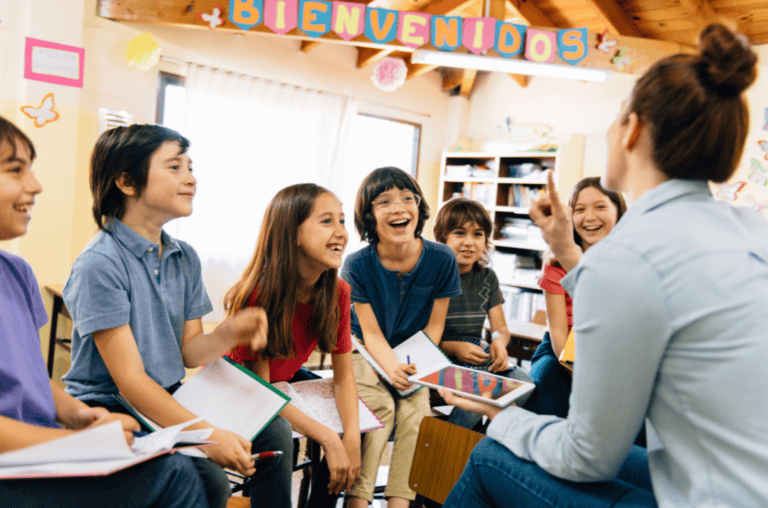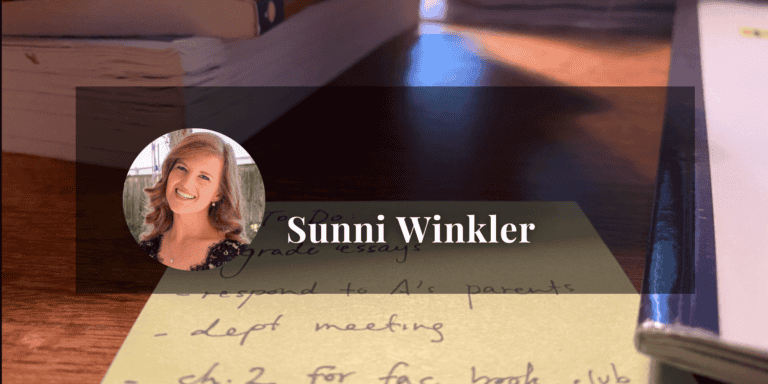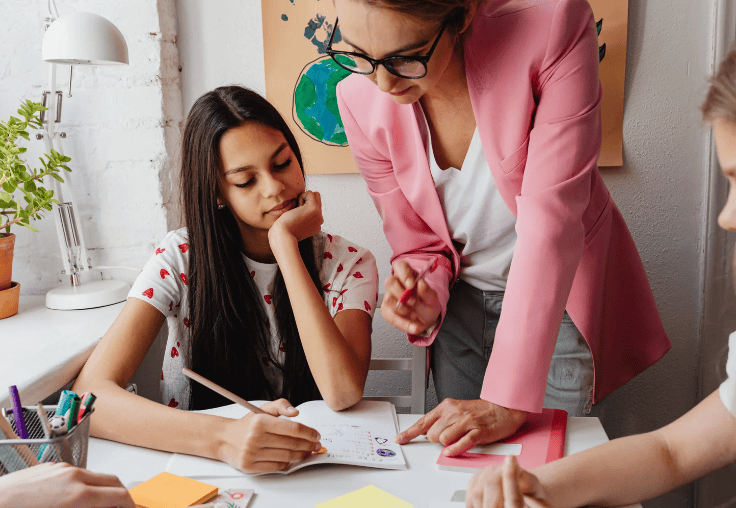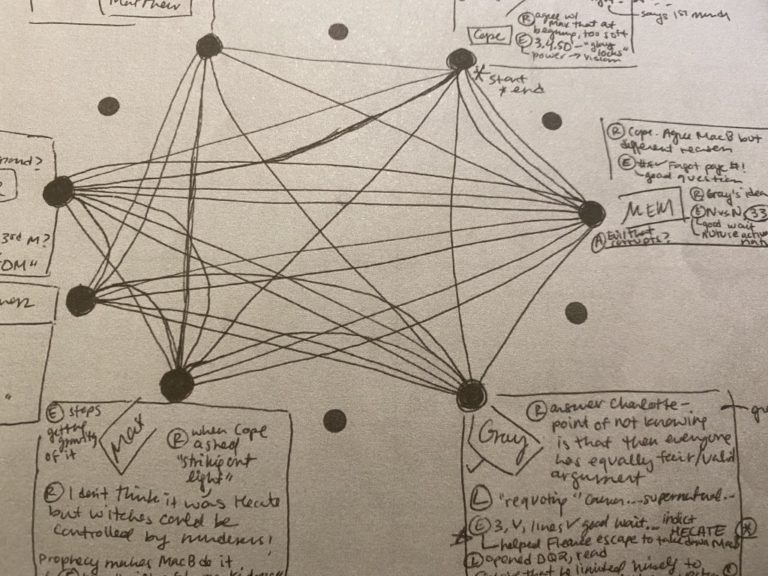Spotlight on R.E.A.L.® Basics
When we started R.E.A.L.® Discussion, our original program was geared toward high school-aged students. As R.E.A.L.® grew, we listened to and learned from educators who said they wished their high school students had this kind of training earlier – and consequently, we added programming to support discussion skills scaffolding in Middle School.
We kept listening, and we kept learning, and earlier this year we launched R.E.A.L. ® Basics: our program for students in grades 2-5. Today, we’re spotlighting this foundational program, which provides instruction in the most basic building blocks students – and people! – of all ages need to thrive in conversation within and beyond the classroom.
Elementary School is for Learning the Basics
We’ve said it before: too many schools treat discussion like a pick-up sport. Kids show up to class discussion with various degrees of familiarity and preparation, and certain students have a big advantage over others.
We don’t think discussion needs to be this way. Instead, we’ve designed our three programs to complement the skill level of each age group. Much like elementary school PE programs focus on instruction of individual athletic skills – skills like dribbling, shooting, and passing, for example – R.E.A.L. ® Basics focuses on training students in four essential discussion skills – Relate, Excerpt, Ask, and Listen – in a foundational way. We do that with a series of “Mini-Lessons.”
“Mini-Lessons allow R.E.A.L. ® skills to be broken down into manageable chunks that can be taught at the lower level,” says Kath Moriarty, a Learning Specialist and Lower School Director of Academic Support at Nashoba Brooks School and R.E.A.L. ® Basics Trainer. Our Mini-Lessons offer direct, explicit instruction through teacher modeling, then provide active engagement opportunities that allow students to work together, before offering time for independent extra practice with a given skill.
R.E.A.L. ® Basics Mini-Lessons activate several core principles:
- They provide focused skill instruction, which allows educators to teach individual skills as needed.
- They’re adaptable, because we know each teacher knows what will work best in their own classroom
- They’re spiraled, enabling students to revisit skill-focused lessons to practice with different texts or subject areas at various points throughout the year.
In just a few months, teachers are finding that R.E.A.L.® Basics is making a real difference in their classrooms. Even at this young age, discussion skills matter – for reading comprehension and literacy support, for the development of inquiry and curiosity, for building metacognition and executive function, for facilitating turn-taking and strengthening relationships, for activating deep listening, for feeling heard and known, and so much more. Armed with these skills, the youngest learners are ready to approach discussion – in the classroom, in the cafeteria, and at the dinner table – with more confidence, nuance, and skill.
Interested in learning more about R.E.A.L. ®’s skills-based approach to discussion? We’d love to chat! Reach out to our team today to get started.
